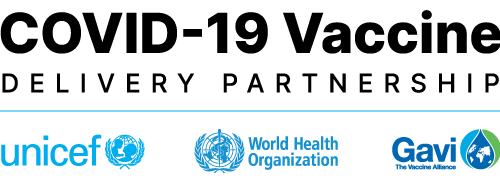With a population of just over 20 000, Ménaka is the largest outpost in the Malian southeast frontier with Niger.
Regional security is volatile and violence is present: armed groups attack and constrict routes between Ménaka and its nearest neighbouring localities, Anderamboukane and Ansongo.
As a result, people are displaced and on the move from the Ader Douchi hills to what is the nearest town with services, Ménaka. They need safety and shelter—but they also need vaccines. In December 2022 Ménaka and its surroundings were included in a Malian vaccination campaign against COVID-19. The vaccines are to be sent in by plane for delivery 1500 kilometres away.
The journey starts with a close look in the capital, Bamako.

Photo credit: WHO / Fatoumata Diabaté
It was only at the end of August 2021 that Mali’s National Immunisation Center, comprising three cold rooms and a dry store in the capital district in Bamako, got up and running near the city administration centers. It’s seen heavy use since.
Dr Soumana Daou, the centre director, inspects COVID-19 vaccines on 14 December 2022. He’s getting the vaccines ready for delivery from the capital to Ménaka. They’ll soon be heading to the country’s arid eastern borderlands.

Hamza and Mohamed then load up the vaccines at the National Immunisation Centre in Bamako, the COVID-19 vaccines are readied for the airport, the delivery destination is the town of Ménaka in eastern Mali.

Photo credit: © WHO / Fatoumata Diabaté
The next morning, 15 December 2022, COVID-19 vaccines and coolers are strapped in on a waiting plane at President Modibo Keita Airport in Bamako. They are bound for Ménaka in eastern Mali.


Photo credit: © WHO / Fatoumata Diabaté
Ibrahim Daouda, 35, a driver with the humanitarian group ACTED, unloads the vaccines for delivery. They will be used in a vaccination campaign against COVID-19 in the town of Ménaka and surrounding areas, in the east of the country near the border with Niger.

Photo credit: © WHO / Fatoumata Diabaté
The security situation in the region is volatile, and vaccines are precious cargo in a vulnerable setting.
After being unloaded from the plane and driven into town, Sidi, a guard at the Regional Health Directorate in Ménaka, opens the gates to let in the vehicle loaded with COVID-19 vaccines.

Photo credit: © WHO / Fatoumata Diabaté
“Together, we can!”
Mohamed Touré, 39, is a recently-arrived Ménaka-based consultant for UNICEF. He’s focused on water, sanitation and hygiene issues (WASH), nutrition, and education in emergency situations.
Touré works with many kinds of partners, including NGOs and government, and this was so during the COVID-19 vaccination campaign in Ménaka in December 2022: "We intervene via the regional health department by receiving the vaccines, storing them and keeping the calendar for the campaign,” he says.
State services preside over campaigns.
“We also provide support through communication, mobilisation, document preparation and monitoring in the field, both at the level of mobile clinics and at the level of fixed points in health centres and health districts.”

Photo credit: © WHO / Fatoumata Diabaté
Dr. Mahamadou Diawara from WHO greets a group of women who came to be vaccinated against COVID-19 at the Madina Community Health Centre in Ménaka on 17 December 2022.

Photo credit: © WHO / Fatoumata Diabaté
On the move: as of June 2022, 163 schools in the Ménaka area were closed and there were residents displaced in outlying areas and moving to town because of threats from armed groups. In December, the International Organization for Migration distributed aid kits including sleeping and cooking equipment to 335 displaced households.
Many of the people seeking temporary shelter in the region will wind up here, at Garde camp (camp de garde) in Ménaka.
A great deal of vaccination in Mali is done through mass campaigns, including against polio, measles and meningococcal disease. This was true also for COVID-19, even under hard conditions and with meagre means.

Adizatou, a community health worker, checks a COVID-19 vaccination certificate during a campaign stop at site PDI d’Inekar in Ménaka on 18 December 2022.

Vaccinating Madani: Adizatou, a community health worker, administers vaccine against COVID-19 during the campaign at Camp de garde in Ménaka.

Bouba Traoré, 36, a psychologist working for WHO, arrives at the Regional Health Directorate of Ménaka on 19 December 2022. He has been based in the area since June 2022.
"We provide psychosocial care to people in psychological distress,” he says. “We pay special attention to people who are victims of stigmatization for having contracted COVID-19.”
Bouba’s goals more generally are to raise awareness about mental health and let people know that some experiences can cause trauma that requires support.
“This is why we go to people in crisis situations to listen to them, comfort them and accompany them. Here in Ménaka, people are open and easily accept our support.”

Eighty-two years old, and he’s glad of it: Seydou Djero’s seen much in his life; he says he’s happy to be vaccinated against COVID-19.
In January 2022, WHO, UNICEF and Gavi established the COVID-19 Vaccine Delivery Partnership (CoVDP) to intensify support to COVID-19 vaccine delivery. Working with governments and essential partners, CoVDP provided urgent operational support to the 34 countries that were at or below 10% full vaccination coverage in January 2022 on their pathways toward achieving national and global coverage targets. The greatest benefits of this approach were increases in full vaccination and booster coverage for in both general and high-priority populations – older adults, healthcare workers, and persons with co-morbidities, including immunocompromised persons.
Read more about the COVID-19 Vaccine Delivery Partnership.
 |  |
